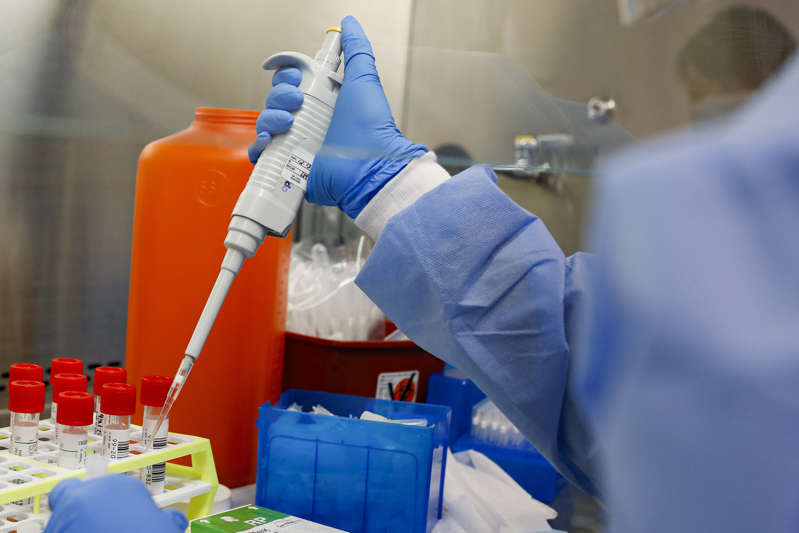
Skoltech scientists have published a study detailing the record-longest case of coronavirus infection, which lasted 318 days. A preprint of the article is available on the Research Square website.
The patient, designated C, was a non-Hodgkin B-cell lymphoma patient who tested positive for coronavirus in April 2020, and the first negative test was received almost a year later, in March 2021. During this time, the woman suffered several serious symptoms, including fever and pneumonia.
Scientists followed the evolution of SARS-CoV-2 in the patient's body using genome-wide sequencing and phylogenetic analysis, which confirmed that the woman had been suffering from the same infection all this time. During the year, the virus has undergone 40 mutations, which is much faster than it happens in the population. SARS-CoV-2 has adapted to the body of one person, improving its ability to survive and reproduce faster. Several mutations affected the S-protein and were similar to those seen in other patients.
Previously, it was believed that mutations in the S-protein were fixed in response to the action of neutralizing antibodies, however, patient C had no B-lymphocytes, and she had almost no IgG antibodies. In addition, many mutations occurred in proteins that are not on the surface of the viral envelope. This is because the patient still had T-cell immunity, which is able to recognize any proteins encoded in the genome of the virus. Thus, SARS-CoV-2 acquired a protection that allows the virus to resist only that part of the immune system that is preserved in the patient.
The scientists confirmed that the mutations accumulated by the virus allowed it to purposely evade the presentation of antigens by the alleles of the patient's major histocompatibility complex (MHC), making the T-cell immune response ineffective. MHC presents foreign molecules to T cells for recognition and subsequent destruction of the pathogen. It is likely that new strains, which are characterized by increased resistance to antibodies, could also arise and quickly accumulate mutations in the body of people with weakened immune systems.

